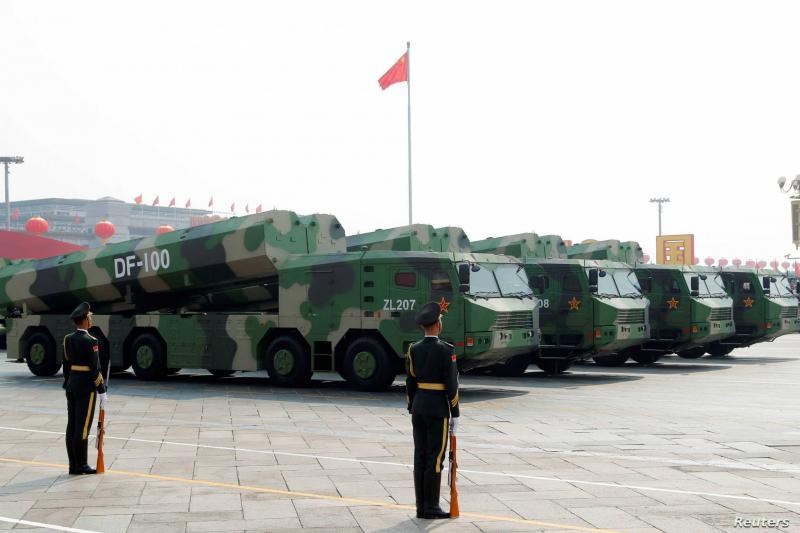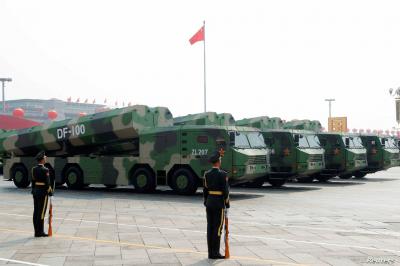The Financial Times reported on Saturday that China tested a "new space capability" by launching a hypersonic missile into orbit. The British newspaper, citing sources familiar with the experiment, noted that Beijing launched a missile capable of carrying a nuclear warhead in August, which flew around the Earth in a low orbit before descending toward its target, missing it by 32 kilometers, according to three sources.
The sources stated that the launch was conducted using a Long March rocket, which China usually announces, while this operation remained secret. The report indicated that this advancement in hypersonic weaponry by China "surprised U.S. intelligence." Pentagon spokesperson John Kirby declined to comment on the report, adding that "we have clearly expressed our concerns about the military capabilities that China continues to develop, which can only increase tensions in the region and beyond. This is one of the reasons we consider China the top challenge that requires our action."
Alongside China, the United States, Russia, and five other countries are also developing hypersonic technology, according to AFP. Hypersonic missiles, similar to conventional ballistic missiles capable of carrying nuclear warheads, can fly at speeds exceeding five times the speed of sound. Ballistic missiles travel at a high altitude in space on a parabolic trajectory to reach their target, while hypersonic missiles fly on a low trajectory in space and can reach their target faster. Importantly, hypersonic missiles can be controlled, making them harder to track and intercept.
Countries like the United States have developed systems designed to defend against ballistic missiles and cruise missiles, but little is known about the ability to track and intercept a hypersonic missile. China has developed this technology offensively, considering it essential to defend itself against U.S. advancements in hypersonic technology and others, according to a recent report by the U.S. Congressional Research Service.
This experiment occurred amid rising tensions between the United States and China, as Beijing intensifies its military activities near Taiwan, a democratically governed island allied with Washington, which China regards as a province of its territory and threatens to reunify with the mainland. The Pentagon has not yet responded to a request from AFP for comment on the report.




